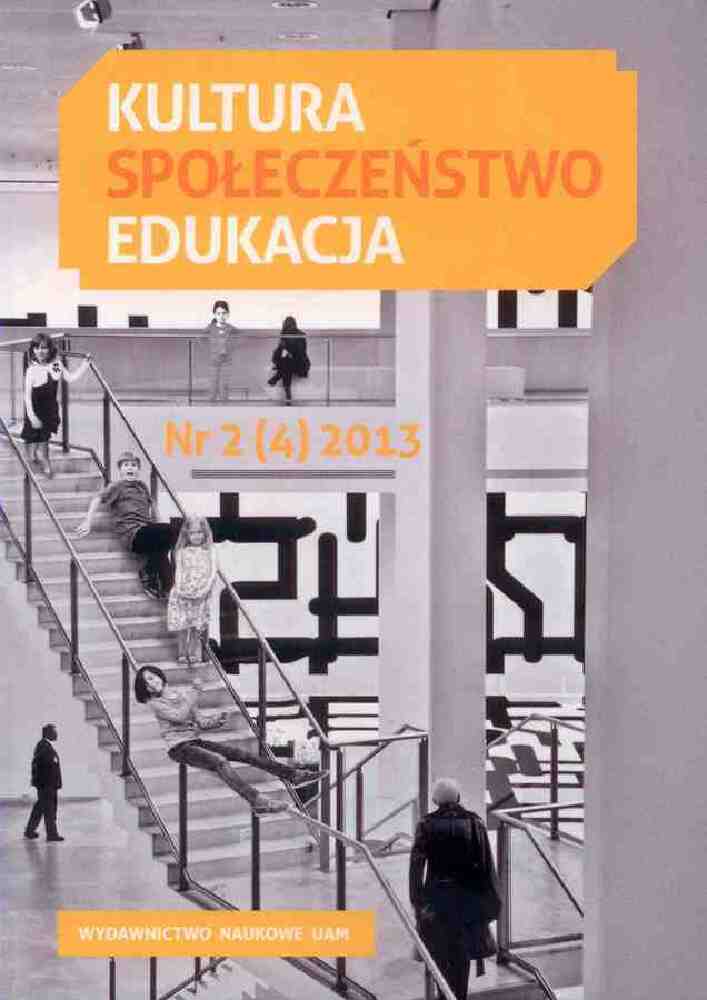Abstract
The aim of the following work is to analysis the results of survey concerning the structures and conditioning of students’ political attitudes. The factors which create appreciation to two political parties, Palikot’s Movement (presently Your Movement) and Poland Comes First and their leaders, were shown. The assessment of sympathy towards the parties was made in order to nd out if it is not related with the political organizations from which the leaders come (Civic Platform and Law and Justice). The issue of emotions was also analysed since they are important elements of the attitudes, as well as they form them. The studies associated with the political attitudes improve that emotions towards the candidates have an impact on the voting process. Electors often have preconception feelings towards the candidates when they don’t know anything about their platforms. The survey shows, that Janusz Palikot is much more recognizable as the politician than Paweł Kowal. The attitudes towards his party are very emphatic and they are related with the antipathy to Law and Justice and Jarosław Kaczynski and with the sympathy to Donald Tusk, the prime minister. The analysis also suggest that the supporters of Poland Comes First create their views through the traditional socializing agendas like the social background, whereas the supporters of Janusz Palikot’s party form their views on the basis of contact with their partners, at the same time rejecting the traditional socializing institution as the church.References
Aronson E., T.D. Wilson, R.M. Akert. 1997. Psychologia społeczna – serce i umysł. Poznań.
Delli Caprini M. 2000. “Youth. Civic Engagement, and the New Informational Environment”. Political Communication 17: 341-349.
Franklin M. 1996. Electoral Participation. W Comparing Democracies. Election and Voting in Global Perpective. London.
Garlicki J., N. Bogomilski. 2004. Kultura Polityczna w społeczeństwie demokratycznym. Warszawa.
Jakubowski W., E.M. Marciniak, P. Załęski. 2008. Socjalizacja polityczna młodego pokolenia Polaków. Warszawa.
Mandrosz J. 2002. Czynniki ograniczające racjonalność poglądów i zachowań politycznych. W Podstawy psychologii politycznej. Poznań.
Myers D.G. 2003. Psychologia społeczna. Poznań.
Pawełczyk P., K. Churska-Nowak, B. Jankowiak. 2012. „Struktura i uwarunkowania emocjonalnego komponentu postaw politycznych studentów”. Przegląd Politologiczny XVII (4).
Pawełczyk P., B. Jankowiak. 2013. „Cechy wizerunku politycznego a emocje w głosowaniu na Bronisława Komorowskiego i Jarosława Kaczyńskiego w wyborach prezydenckich w 2010 roku. Raport z badań postaw politycznych studentów” Przegląd Politologiczny XVII (2).
Smith A. 1999. “The Effects of Investment in the Social Capital in Youth on Political and Civic Behavior in Young Adulthood”. Political Psychology 20: 553-580.
Uslaner E. 1998. „Social Capital, Television and He Mean Word: Trust, Optimism, and Civil Participation”. Political Psychology 19: 441-467.
Wattenberg M.P. 1987. “The Hollow Realignment: Partisan Change in a Candidate-Centered Era”. Public Opinion Quarterly 51.
License
Copyright (c) 2017 Piotr Pawełczyk, Barbara Jankowiak, Anna Gulczyńska

This work is licensed under a Creative Commons Attribution-NoDerivatives 4.0 International License.
